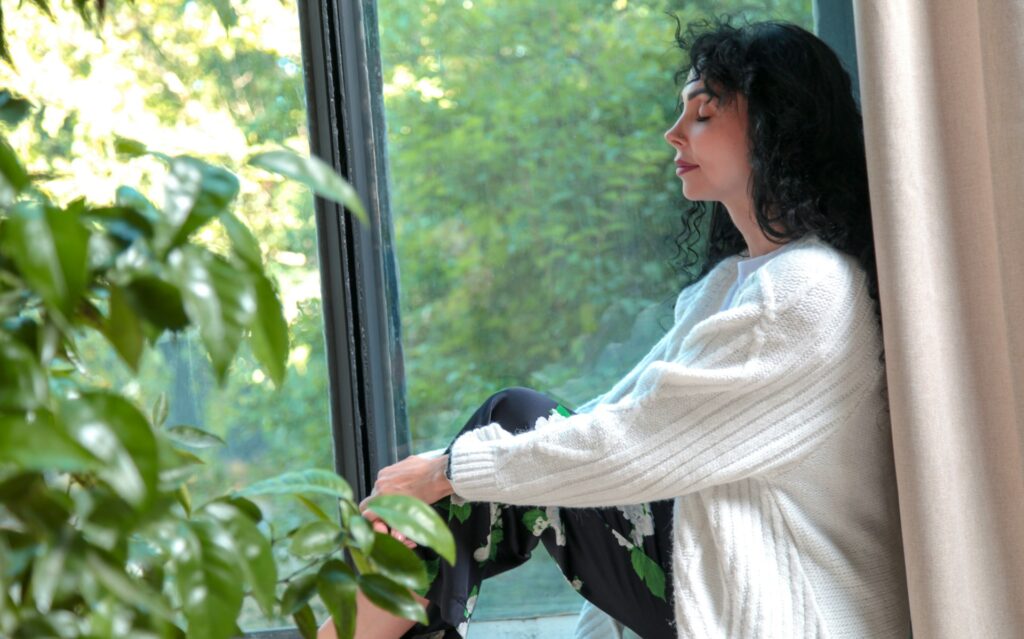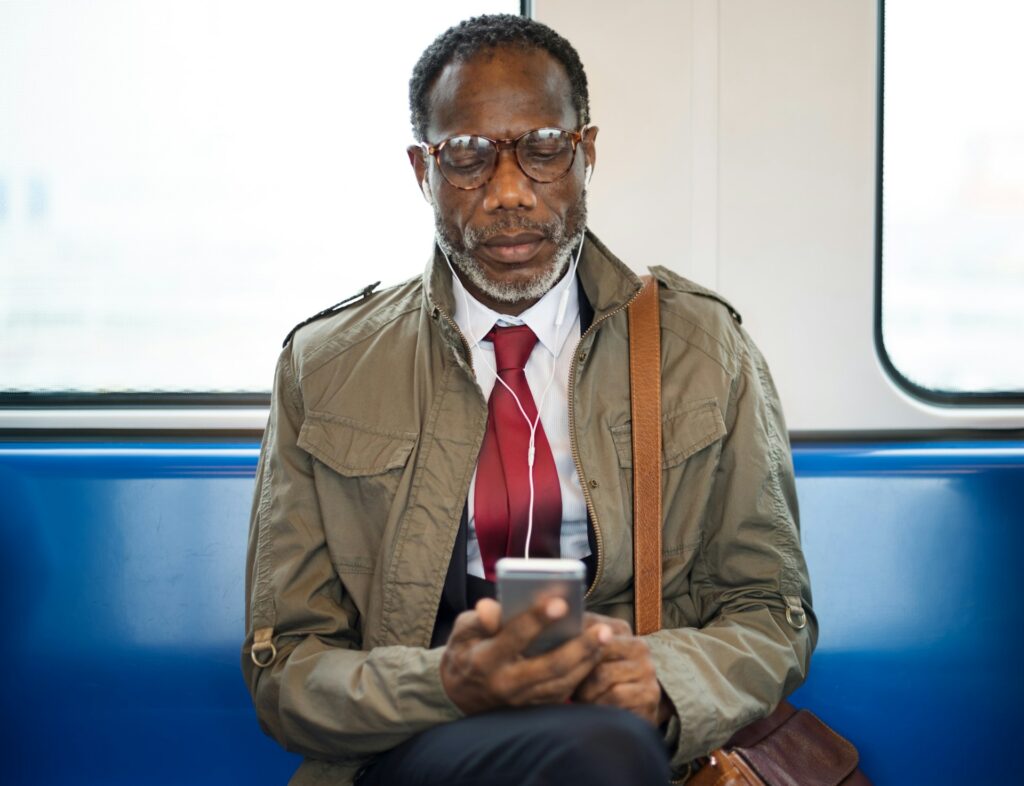Someone who’s experiencing loneliness isn’t necessarily sitting alone in their home crying about how isolated they feel.

They don’t often don’t walk around saying, “I’m lonely.” Instead, they try to cope, self-soothe, or distract themselves in quiet ways. However, as time goes on, these patterns can become part of their emotional routine—keeping them feeling isolated without fully knowing why. Here are some of the subtle, everyday things lonely people tend to do, often without realising what’s really behind them.
1. Overexplaining themselves in conversations

They often feel misunderstood or worry they’re “too much,” so they explain every detail—just to be safe. It’s not about being thorough; it’s about craving connection and clarity where they rarely feel it. Doing this can stem from rarely feeling truly heard, so they overcompensate, hoping that being crystal-clear will earn understanding they’re silently missing.
2. Talking to themselves more than they talk to other people

It’s not necessarily a problem—many people self-talk—but when it becomes your main form of dialogue, it can be a sign of emotional isolation. It can feel like the only space where they can be honest without judgement. A place to rehearse, process, or just not feel so invisible.
3. Spending lots of time with people they don’t actually feel close to

Lonely people aren’t always alone. In fact, they’re often surrounded by other people, but still feel disconnected. The conversation stays surface-level, and real connection feels out of reach. This creates a strange kind of double loneliness: you’re with people, but no one really sees you. So you leave the gathering feeling emptier than when you arrived.
4. Getting overly invested in fictional characters or celebrities

They may feel more emotionally connected to a podcast host, a YouTube creator, or a show’s main character than the people in their actual life. These relationships feel safer, more comforting, more consistent. It’s a way to simulate closeness—to feel part of something—without the risks that come with real intimacy or vulnerability.
5. Turning every social interaction into a performance

Lonely people often feel like they have to “earn” connection. So they become overly funny, charming, or agreeable in social settings, always managing the vibe instead of actually relaxing into it. It’s exhausting, sure, but they’re afraid that being themselves won’t be enough to keep anyone interested or around.
6. Keeping their space spotless, or completely chaotic

Some lonely people obsess over tidying because it gives them a sense of control. Other people let everything go because there’s no one around to notice or care. Either way, the way they care for their space often reflects the emotional clutter—or emptiness—they don’t know how to name.
7. Staying up really late for no reason

The quiet hours of the night can feel like the only time they’re truly alone with their thoughts, or the only time they don’t have to pretend. It’s not insomnia, exactly. It’s a subtle resistance to ending the day, especially if it’s felt unfulfilling or lonely.
8. Apologising too much, even when nothing’s wrong

When you don’t feel secure in your relationships, it’s easy to assume you’re always on the verge of annoying, offending, or losing someone. So, “sorry” becomes a reflex. Not because they did anything wrong, but because they’re used to feeling like a burden just for existing.
9. Saying “I’m just tired” when they’re actually emotionally drained

“Tired” is a catch-all phrase. It’s easier than saying “I feel invisible” or “I haven’t had a real conversation in weeks.” It makes their inner world more palatable to other people, but also keeps people at a distance, reinforcing the isolation. They could admit that they’re feeling isolated and alone, but that’s too scary or even embarrassing, so they don’t.
10. Spending hours scrolling without remembering anything they saw

It’s not boredom—it’s numbness. Scrolling fills the silence. It simulates connection, but it doesn’t nourish anything. What’s so tragic is that afterwards, they often feel worse. Still, the habit is hard to break because real connection feels far away, while a screen is always right there.
11. Holding back from reaching out, then resenting that no one checks in

Lonely people often crave connection, but worry they’ll come across as needy, so they wait. They tell themselves, “If they cared, they’d reach out.” And when no one does, the loneliness deepens. It becomes a cycle: wanting to be seen, staying quiet, and then quietly mourning the silence that follows.
12. Overanalysing texts or online interactions

When connection is scarce, every small exchange carries weight. Was that “okay” passive-aggressive? Why didn’t they use an emoji? This kind of hypervigilance isn’t meant to be dramatic—it’s because they’re desperately wanting reassurance that they still matter to someone.
13. Pretending to be fine so convincingly that no one checks in

They’ve mastered the art of the “I’m good!” smile, the upbeat tone, the casual replies. On the outside, they’re holding it together perfectly. However, inside, they’re hoping someone will see through it and ask how they really are. Even though they’re not sure how they’d answer if someone did.
14. Pouring energy into people who never fully show up for them

Sometimes they cling to one-sided relationships—friends who flake, partners who don’t commit, family members who never reciprocate. They keep giving, hoping it’ll eventually feel mutual. They’d rather hold onto something shallow than face the ache of having no one at all.
15. Forgetting what they actually enjoy doing

When you’re disconnected from other people for too long, you often become disconnected from yourself, too. Hobbies feel dull. Passion projects collect dust. Even choosing what to eat feels oddly pointless. Loneliness doesn’t just affect relationships—it dulls your whole sense of self and what brings you alive.
16. Becoming overly attached to routines or rituals

When relationships feel unpredictable, lonely people often create strict routines to feel anchored. Their morning coffee, evening walk, or specific playlist becomes a source of comfort and structure. It’s not unhealthy, but it can be a sign that the rest of their life feels unstable or empty.
17. Avoiding eye contact or small talk in public

When you feel chronically disconnected, even casual interactions can feel awkward or emotionally risky, so you avoid them. Headphones in. Eyes down. Just get through the day. However, every avoided glance becomes another missed chance at micro-connection, and the loop continues.
18. Crying over things that don’t seem that sad

A TV ad. A random comment. A dropped glass. It’s not really about the moment—it’s about everything underneath it. The built-up weight that finally leaks out in the safest way it can. When there’s no space for big feelings, they squeeze through the cracks in unexpected places.
19. Being hyper-independent to avoid disappointment

They’ve learned not to rely on other people because relying has too often led to being let down. So they do everything themselves, even when they’re exhausted. It looks like strength, but it’s really self-protection. It’s a way to control something when connection feels unreliable.
20. Quietly hoping someone will just notice

Even if they don’t say it, even if they pretend they’re fine—lonely people often carry a quiet hope that someone, somewhere, will just notice. That someone will check in without being asked. That someone will care enough to reach through the silence. Sometimes, that hope is what gets them through. Even if no one ever does.


